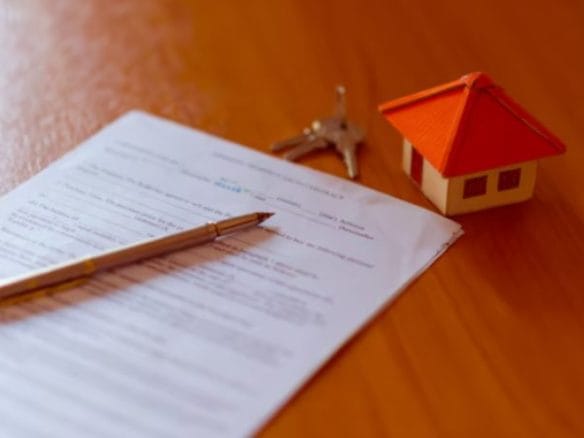Every year, thousands of Nigerians lose homes, properties, and in some cases, lives to devastating floods. From Lagos to Benue, Bayelsa to Anambra, flooding has become more than a seasonal nuisance; it’s a threat to safe housing and long-term investment. But what if you could avoid all of that from the very beginning?
Whether you’re planning to build your dream home or invest in real estate, one of the smartest decisions you can make is to choose a flood-safe location. While no area is 100% immune to extreme weather, certain cities and neighborhoods in Nigeria offer elevated terrain, better drainage systems, and safer zoning, making them far less prone to flooding.
In this article, you’ll discover:
- Why flood risk should never be ignored when buying land,
- What makes an area truly flood-safe,
- The top locations across Nigeria where you can confidently build a home,
- And smart tools you can use to assess flood risks before committing.
Before you lay a single block, let’s help you choose wisely — your peace of mind depends on it.
Also Check: Top 5 Fastest Growing Real Estate Markets in Nigeria Right Now
Why Flood Risk Should Matter to Every Home Builder
In Nigeria, flooding isn’t just a rainy season inconvenience — it’s a serious threat that has destroyed entire communities, displaced thousands of families, and caused billions of naira in damages. Unfortunately, many land buyers and home builders only realize this after the water starts rising.
Here’s why flood risk should be top of mind before you buy land or build a home:
1. Property Damage Is Costly and Often Irreversible
Floodwater doesn’t just wet your floor — it weakens your foundation, damages your electrical systems, ruins furniture, and invites mold and decay. Repairs can cost millions, and sometimes the damage is beyond fixing.
2. Flood Zones Lower Property Value
No one wants to live in a house that floods every year. Even if you manage to build, you may struggle to rent, resell, or insure the property. Properties in flood-prone areas often experience poor demand and lower appreciation over time.
3. Health and Safety Risks Multiply
Stagnant floodwaters can lead to outbreaks of waterborne diseases like cholera, typhoid, and malaria. In some cases, flooding has led to accidental deaths, collapsed buildings, and fire outbreaks due to short circuits.
4. Insurance May Be Expensive or Unavailable
In areas with a history of flooding, getting property insurance can be more expensive or completely denied. This leaves homeowners vulnerable to total loss without financial backup.
5. The Government Already Warns About This
Agencies like the Nigeria Hydrological Services Agency (NIHSA) and NEMA issue annual flood predictions. Ignoring these warnings when choosing where to build is a mistake many regret later.
If you’re going to invest your life savings in land or a home, it makes sense to ensure it’s not in the path of disaster. In the next section, we’ll show you exactly what to look for in a safe, flood-free location.
Also Check: Why Social Media Is No Longer Enough for Property Listings in Nigeria
Top Flood-Safe Locations to Build a Home in Nigeria
While no place is completely immune to natural disasters, some areas in Nigeria have proven to be significantly less vulnerable to flooding — thanks to their elevation, drainage infrastructure, or town planning. Below, we highlight key flood-safe zones across major states and cities, based on geography, local reports, and development standards.
Note: Always verify specific plots within these areas, as flood safety can vary from street to street.
Lagos State
Lagos is Nigeria’s flood capital, but a few areas stand out for their relative safety:
- Ikeja GRA: Elevated, well-planned, and government maintained. Minimal flood incidents.
- Magodo Phase II: Secure estate with solid infrastructure and drainage.
- Ogudu GRA: Developed, elevated, and generally safe during heavy rains.
- Yaba (select parts): Especially near University of Lagos and Tejuosho — better elevation and drainage.
Avoid: parts of Lekki, Sangotedo, Abijo, and Ajah unless on verified elevated land within gated estates.
Abuja (FCT)
Abuja benefits from its inland location and planning system. Flooding is rare, especially in these zones:
- Gwarinpa: A large, structured estate with good road and drainage systems.
- Maitama & Asokoro: Highbrow areas, elevated terrain, low flood history.
- Katampe Extension: Newer development area with good elevation.
- Lokogoma (select parts): Still developing — check specific estates for flood-safe planning.
Ogun State
- Abeokuta (Kuto, Laderin, Oke-Ilewo): Mostly elevated with urban planning in these districts.
- Sagamu GRA areas: Elevated plots and official layouts are safer.
Oyo State
- Ibadan (Bodija, Agodi GRA, Akobo, Oluyole Estate): These areas are generally high-ground and well-developed.
Avoid low-lying areas near Eleyele or areas around rivers and wetlands.
Anambra State
- Awka (Aroma, Ngozika Estate, Ifite-Awka): Good elevation and safer from flooding compared to riverine parts of the state.
- Parts of Nnewi: Especially inland areas away from flood plains.
Avoid low-lying towns along River Niger — e.g., Ogbaru, Otuocha.
Rivers State (Port Harcourt)
- Old GRA: Well-planned, drained, and elevated.
- Peter Odili Road (select estates): Some newer gated estates in this corridor are better designed for flood protection.
- Elelenwo: Moderately safe — depends on the estate layout.
Many parts of PH still suffer seasonal flooding — check thoroughly.
Plateau State (Jos)
- Jos: Naturally elevated city, far from flood basins. Rare flood events make it one of Nigeria’s safest areas for home building.
Also Check: How to Know If a Property Listing Is Legit in Nigeria
Tools You Can Use to Check Flood Risk Before Buying Land
No matter how promising a location looks, smart investors and home builders go a step further to verify flood risk using tools, reports, and expert advice. Below are some reliable ways to assess whether land is safe before committing your money:
1. Nigeria Hydrological Services Agency (NIHSA) Reports
NIHSA publishes annual flood forecasts and risk alerts for different regions in Nigeria. These reports often predict flood-prone zones and the level of expected severity. Before buying land, check their website or news updates for your target area.
Tip: Visit nihsa.gov.ng (or search for “NIHSA Flood Outlook”) to find the latest report.
2. Google Earth or Elevation Tools
Free tools like Google Earth, FloodMap.net, or topographic maps can give you a sense of how high or low a particular area is. Areas with low elevation near water bodies are naturally more flood-prone.
Tip: On FloodMap.net, simply enter your area name and check elevation levels vs. flood zones.
3. Ask for Physical Survey Plans or Town Planning Maps
Surveyors and local town planning authorities usually have access to:
- Floodplain maps
- Drainage layouts
- Official zoning documents
Ask to see if the land you’re considering is near a natural drainage line, river path, or government-marked flood area.
4. Hire a Land Surveyor or Environmental Expert
Don’t just rely on agents. A licensed land surveyor or environmental consultant can:
- Measure land elevation
- Check proximity to rivers/drains
- Advise on building orientation and flood control
5. Work With Verified Real Estate Platforms
Some trusted platforms (like Amapha) go the extra mile to verify listings, including location safety, drainage, and accessibility.
Before you build or buy, use at least two of these checks. It might take time, but it could save you millions in disaster recovery or relocation costs.
Also Check: Land Banking in Nigeria: Everything You Need to Know Before You Invest
Safe Locations to Build a Home Away From Flood Zones in Nigeria: Final Thoughts
Building a home is one of the biggest investments you’ll ever make, and choosing the right location is just as important as the building itself. In a country like Nigeria, where flooding continues to threaten lives and properties year after year, proactive location research is non-negotiable.
We’ve shown you how to identify areas that are safer from flood risks, the characteristics to look out for, and the tools to help you make smarter choices. But remember, even in low-risk areas, don’t skip the verification process. Always inspect physically, request proper documentation, and consult professionals before sealing any deal.
Whether you’re buying for personal use or for investment, prioritize safety, elevation, and planning compliance over hype and cheap prices.
The bottom line? Don’t just buy land — buy smart, buy safe.





Join The Discussion